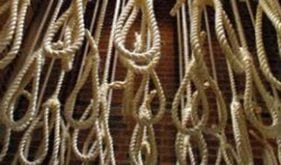Iranwire – The ongoing wave of nationwide protests in Iran have become a battleground for a war of narratives.
The Islamic Republic’s authorities and propaganda machine have sought to discredit the protests as being a result of foreign meddling and misinformation spread by Farsi-language media outlets based outside the country.
Meanwhile, the authorities have tightly controlled domestic media to promote their own version of events and shape public opinion.
Supreme Leader Ali Khamenei has emphasized the importance of controlling the narrative, stating that “if you don’t, the enemy will do it and lie.”
This has led to increased pressure on journalists and media organizations, with security and judicial institutions cracking down on dissenting voices and censoring critical coverage of the protests.
This strategy has effectively silenced independent reporting and stifled dissent, further eroding public trust in the Islamic republic’s institutions.
Instead of addressing the protesters’ grievances, the authorities have resorted to blaming the media and to suppressing free speech, fueling a cycle of mistrust and frustration that threatens to deepen the crisis.
The Forbidden Words
Under the Islamic Republic’s laws, the Secretariat of the Supreme National Security Council is responsible for supervising the implementation of the council’s decisions and for overseeing its administration.
But the Secretariat has now taken the role of media censor.
It has held regular meetings with print and online media managers and gave them a list of prohibited words and expressions like “popular movement,” “women’s rights,” “protest movement,” and “people’s protests.”
Censorship extended its reach beyond the protests to other sensitive issues such as inflation and the value of the national currency, the rial.
The Ministry of Culture and Islamic Guidance, as well as security and judicial institutions, have also summoned media managers during the protests.
Reporting on detainees and victims of the protest crackdown was prohibited, with the authorities claiming that such coverage served foreign media rather than informing the public.
This censorship has limited the ability of the media to report on critical issues and has eroded public trust in the government’s transparency and accountability. By stifling free speech, the government has further alienated itself from the people it claims to serve.
Journalists Detained, Threatened
Photojournalist Yalda Moayerian was arrested on September 18, 2022, just two days after the death of 22-year-old Mahsa Amini in the custody of morality police, which triggered the wave of public anger.
Over the following five months, 73 other journalists and photographers were detained as part of the Islamic Republic’s campaign to control information.
Many others have been summoned by judicial and security institutions.
In an interview with IranWire, one journalist said he had been summoned many times in recent months, and that he personally knows dozens of colleagues who have been pressured the same way.
The summonses focused on the journalists’ activities on social media, particularly Twitter, he said, adding, “We were warned to avoid any criticism of the policies of the Islamic Republic.”
The authorities have also suppressed the media by raiding journalists’ homes and by confiscating their work and electronic devices.
As a result, many journalists, particularly in smaller cities, chose not to report on the security situation in those cities, another journalist told IranWire.
“For a long time, many of us have earned money by working online, using smartphones and laptops that were seized by security agencies but were not returned. If a photographer loses his camera, he might not be able to buy another one under the current economic conditions,” the journalist said.
Meanwhile, at least one journalist, Mohammad Hossein Ajorloo, has lost his job in connection with the demonstrations.
The official IRNA news agency did not renew his contract following the arrest of his wife, Niloufar Hamedi, at the start of the protest movement.
Using the Law to Suppress the Press
In the past five months, the government, parliament and other institutions have proposed more than 15 laws aimed at depriving citizens of services, reducing freedom of expression and obstructing Internet activities.
One such proposed legislation, which is currently being reviewed by the parliament’s Judicial and Legal Commission, would bar Iranians from sending photos and videos to media outlets outside the country deemed as “enemies.”
Another law being considered would lead to the prosecution of those who publish “fake news” on the Internet.
There’s also a plan to remove the tax exemption to the press amid a deepening economic crisis. Media outlets have faced sharp drops in audience and income along with increased costs, leading to staff reductions and reduced content production.
In its annual global report, Reporters Without Borders described the conditions of the media in Iran and 27 other countries as “very bad.” Iran has fallen four places in the past year and ranks 178th.
 Shabtabnews In this dark night, I have lost my way – Arise from a corner, oh you the star of guidance.
Shabtabnews In this dark night, I have lost my way – Arise from a corner, oh you the star of guidance.



